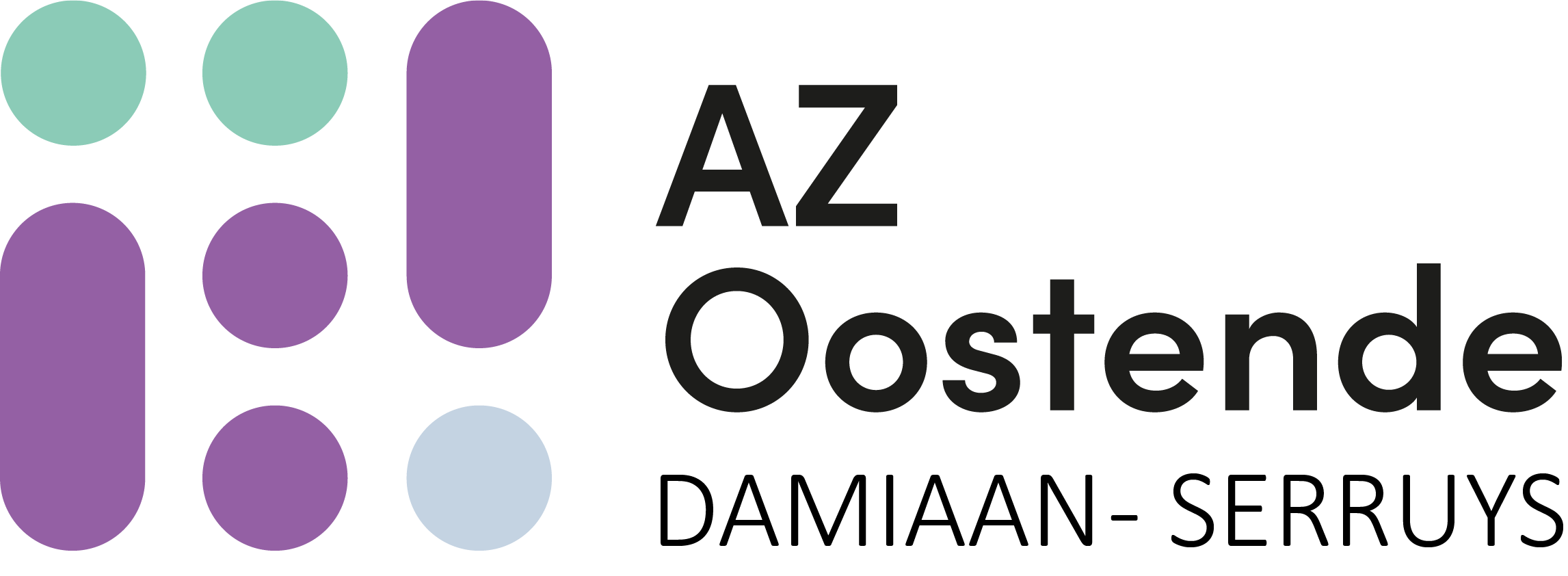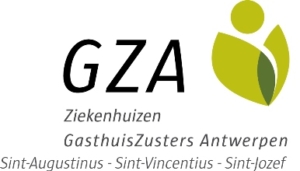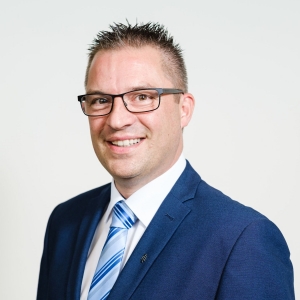Inkendaal Rehabilitation Hospital specialises in treating patients with neurological, locomotor and cardio-pulmonary disorders. The hospital comprises 178 beds for hospitalisation, polyclinic and medical-technical services as well as a day hospital for the multidisciplinary treatment of adults and children. In a unique setting, specialised doctors, therapists, nursing staff and hospital staff envelop the patient with a personalised care package and they jointly set realistic objectives to maximize the quality of life.
Inkendaal approached PHI DATA during its search for the best solution for hospital ward D100, consisting of 31 beds. This ward accommodates adult patients who are disoriented (who no longer know what day it is, where they are,…) and/or suffer from confused speech or actions because of acute brain injury (stroke, accident, reanimation,…). A number of those patients tend to wander off, meaning that they leave the ward on their own and get themselves into a dangerous situation. For these patients, the ward has to remain closed to prevent them from leaving the ward unaccompanied. Other hospitalised patients, however, are able to independently go to therapy rooms outside of the ward without too great a risk, while there is also a large group of motor-impaired patients, who cannot leave the ward independently. Furthermore, many visitors drop by daily, wishing to enter and leave at any time.
Before PHI DATA was contacted, Inkendaal had been operating with a permanently closed door for more than ten years. Patients and visitors wanting to enter or leave, had to key in a code to open the door. But this was far from ideal: patients, staff and visitors would forget the code, or patients with restricted freedom of movement would slip through with visitors. In reality, therefore, the door was kept permanently locked and could only open after intervention by the staff. As a consequence, the staff had less time to focus on their primary tasks, and many visitors of patients who don’t need a fully closed ward, experienced it as a psychological threshold. That is why Inkendaal requested PHI DATA to look for a way to create a selectively closed door, whereby the staff would only need to intervene when patients with a tendency to wander off, want to leave. For the other patients, as well as visitors and disoriented patients wanting to enter, the door had to open without staff intervention. Of course it was vital that the solution would be completely reliable.
“Working together with PHI DATA was very constructive. They were actually the driving force behind the project and thanks to them we achieved the final result. They came up with the location detection of patients with a tag, as well as the tailored-written logic of the entire system.”
Doctor Peter Diels, neurologist and rehabilitation specialist at Inkendaal Rehabilitation Hospital
PHI DATA proposed a stray prevention solution to Inkendaal based on RFID tags by Stanley Healthcare. This involves patients with a tendency to wander off, to be fitted with a wristband containing a tag. If they move too closely within the proximity of the antennas near the double automatic sliding door, the door remains closed. At the same time, the solution sends a signal to the supervisor, who can then intercept and accompany the patient at the door. The doors will open without intervention for untagged patients and visitors. Should a patient with a tag manage to pass through the mantrap doors, for instance by slipping through with visitors, an alarm will sound.
“The return on the solution is hard to express in terms of money. There is, however, far less stress among the staff, especially around visiting times, while the ward’s operational quality has improved and our patients are safer“, says Doctor Peter Diels, neurologist at Inkendaal Rehabilitation Hospital. A less predictable result of the solution is that the aggressive behaviour of patients towards staff has diminished. As the door doesn’t open when a wandering patient feels compelled to leave, the staff do not have to intervene to stop him/her. Besides, the patients find the system so complex that they believe the staff when they tell them that they are unable to open the door because of the current settings.”
PHI DATA provided the necessary hardware, such as the patient tags, installed the antennas and exciters at the door and connected the solution to the existing network to ensure that the right people are alerted when an alarm goes off. Furthermore, PHI DATA wrote the central application that controls all inputs and outputs, such as push buttons, badge readers, lights and sliding doors, and also controls the alarms.
As the system is able to detect the precise whereabouts of the patient(s), it knows how to respond. For instance, when a visitor pushes a button to enter the ward while a patient with a tag is standing in front of the door at the ward, the door will not open. When a patient with a tag is inside the mantrap, only the door to the ward will open. These response models were pre-entered into a separate table, allowing the logic to be adjusted without having to re-programme the entire system.
Infrastructural changes were kept to a minimum for the installation of the double sliding door.
Inkendaal is looking to expand the system in the longer term. “Wandering within the ward itself sometimes leads to disruptions and/or dangerous situations”, says Doctor Diels. Sometimes patients who are confused move other residents’ belongings, hide themselves at night, or show aggressive behaviour towards staff and other residents. We are also considering to section off areas within the ward, where a restricted freedom of movement will apply, or to restrict access to rooms. Another option is to make sure an alarm goes off when certain patients enter certain areas. For patients who do not really wander off, but do suffer from disorientation, we are considering to install a solution that enables us to localise them across the entire hospital site.”










